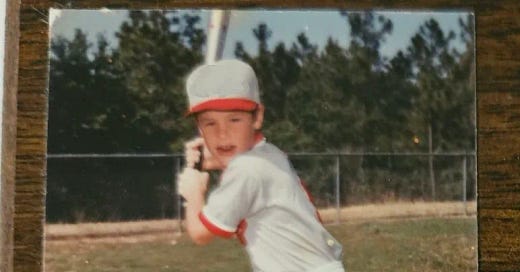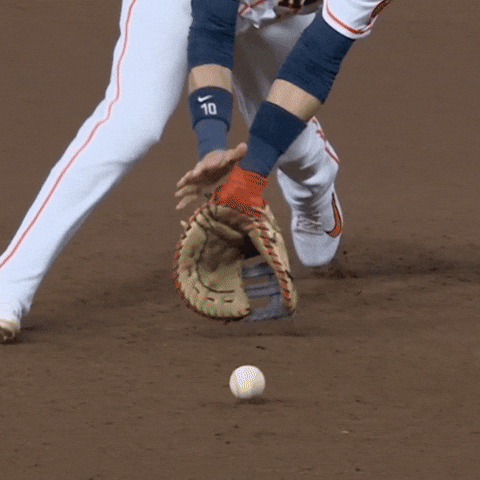I had just been moved from the outfield to the infield. Third base wasn’t the busiest infield position, but you definitely saw a lot more action over there. Even if a kid on the other team couldn’t hit the ball hard enough to make it to the outfield, a third baseman had to pay close attention for every pitch.
Let’s call this third grade, although it’s possible that it was fourth. This would be a year after I was told to quench my thirst by swallowing my spit—startling at the time, but here I was a year older now, and maybe I was a year tougher, too.
At practice, we did the sort of repetitive drills that you need in order to get your 10,000 hours of practice in. We’d practice catching fly balls, then throwing the ball to another base in case there was a runner. We worked on double plays where we had to learn to become a cohesive team.
Most of all, we worked on fielding ground balls. Ground balls (when a baseball is hit low to the ground and rolls or hops around) are incredibly common, but they can also be tough for kids to deal with. The clay surface we played on in particular made ground balls tougher to field than you might imagine.
It was at one of these practices that a ground ball changed at least one kid’s life forever, although maybe that’s a bit dramatic. I’ll let you be the judge.
Chad was on second base, and I was on third. I really liked Chad—he was enthusiastic about baseball, and he had serious skills. Second base was a much tougher position than third base, and Chad was really coordinated for a third grader. Even though he was much smaller than me, he was a giant on the field, and I looked up to him.
A ground ball was headed for the second base position, right there in between first and second on the field. The first baseman has to stay close to first base most of the time, so the second baseman picks up a lot of the slack.
Chad quickly positioned himself in front of the rolling ball, so he could scoop it up into his glove. Chad pointed his glove to the ground to capture the incoming ball. Suddenly, the ball took a bad hop and bounced off of some rock that was embedded in the clay, maybe. The ball hit Chad right in the mouth.
Chad’s top front tooth—an incisor—was chopped right in half, horizontally. I watched some blood come from Chad’s mouth as he mourned the loss of his permanent tooth (I made sure to ask). Actually, I don’t think Chad was mourning much of anything in that moment. He was in shock.
I might have been in a mild state of shock myself! Kids had lost teeth before, including me, but this was altogether different. This was permanent damage.
I don’t remember the coaches rushing in, nor do I remember Chad being rushed away. I only remember a shared feeling of concern among the team, and a feeling of dread and shock that overwhelmed young Andrew. I was just old enough to understand what permanent damage meant, but young enough not to understand that life would probably be relatively normal for Chad after this anyway.
The kid whose life changed forever that day is me. I’m not sure my relationship with danger has ever been quite the same. It would be a couple more years before puberty set in and I was once again ready to put my body at risk, but even then, my eyes had been opened to the potential dangers out there in the world.
Can you remember any bad hop incidents from your childhood? I’m not talking about when someone you knew got hurt, but instead a moment when things unexpectedly changed, opening your eyes to a deeper, richer reality out there.
And: was I being dramatic?







"Chad was on second base, and I was on third."
But Who's on first?
I remember when a star athlete in my high school died…from shoveling snow. It was probably an undiagnosed defect, but it opened my eyes to the fact that bad things happen to kids all the time, even in leafy green suburbs.